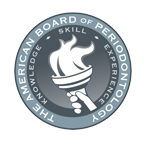We’ve all learned the fundamentals of keeping our teeth and gums healthy… Brushing twice a day, flossing every day, frequent dental check-ups, and so on. Is there anything else we can do? Yes! Most of us are unaware that what we eat and how our bodies absorb nutrients play a big effect on our overall dental health.
Here are four foods we should include in our children’s diets:
- Drink plenty of water.
- For Vitamin D, get 20-30 minutes of midday sun exposure.
- Consume enough healthy fats.
- Magnesium consumption per day
How to Encourage Your Children to Drink More Water
Water is the most crucial nutrient for us on the earth, but most kids struggle to drink enough of it. Chronic dehydration can cause a variety of health issues, but it can also have a significant influence on your oral health.
Here are a few examples of how drinking water might benefit your family’s oral health:
- Removes newly produced germs.
- It aids in the production of saliva, which is your mouth’s first line of defence against tooth decay.
- Lowers the pH of your tongue after consuming acidic meals and beverages.
Tip: If you’re having difficulties encouraging your kids to drink plain water, try adding some fruits like strawberries, lemon, lime, or a combination of the three.
Get Your Children Outside and Consider Taking a Vitamin D Supplement
While most of us understand that having enough vitamin D is important for good health, you may be surprised to learn that it is also linked to better overall oral health.
Vitamin D not only helps to prevent tooth decay, but it also helps to prevent other gum illnesses such as gingivitis. One study found that children who received a vitamin D supplement on a daily basis had fewer cavities than those who did not receive the supplement.
Even if you live in a generally sunny location, you’re definitely lathering your children with sunscreen due to our concern about skin harm. Unfortunately, this prevents our bodies from absorbing the necessary levels of vitamin D from the sun. While we still advocate protection for prolonged sun exposure, we encourage that your children get 10–30 minutes of mid-day sunlight without sunscreen multiple times per week.
If you believe your children require additional vitamin D, ask your pediatrician for a simple blood test and/or supplement suggestions.
Increase the number of healthy fats in your child’s diet.
The days of avoiding fat are long gone; or, at least, they should be. Healthy fats are crucial for good dental health and even general wellbeing. Not all fats, however, are made equal. When we talk about healthy fats, we mean foods high in omega 3s and saturated fats like olive oil, avocados, coconut oil, grass-fed butter, almonds, and fatty fish.
Here are four simple methods to incorporate more healthy fats into your children’s diets:
- In the morning, make smoothies with coconut oil or avocados.
- Almonds can be served as an afternoon snack or included with lunches.
- Look for kid-friendly no-bake energy bars that feature coconut oil, grass-fed butter or ghee, flaxseed meal, and/or almond butter.
- Inquire with your pediatrician about kid-friendly supplements such as cod liver oil.
Magnesium Consumption Every Day
Magnesium is the eighth-most prevalent mineral in the universe and the fourth most abundant mineral in the human body. It is required for a variety of bodily reactions. Needless to mention, it is essential to our entire health, which includes strong bones and teeth. Traditionally, we got most of our magnesium from food. Unfortunately, most current farming practices deplete the soil of its natural magnesium.
You can add magnesium to your diet by taking a supplement or using a topical magnesium spray. Inquire with your pediatrician about their recommendations.
To summarise
Making sure your children brush and floss their teeth is only the tip of the iceberg when it comes to oral health. You must also ensure that they are getting enough fluids, nutrients, and minerals for their bodies to naturally keep their teeth and gums healthy from the inside out.
We hope you have received all of the necessary information; for additional information, please see our blog section.









